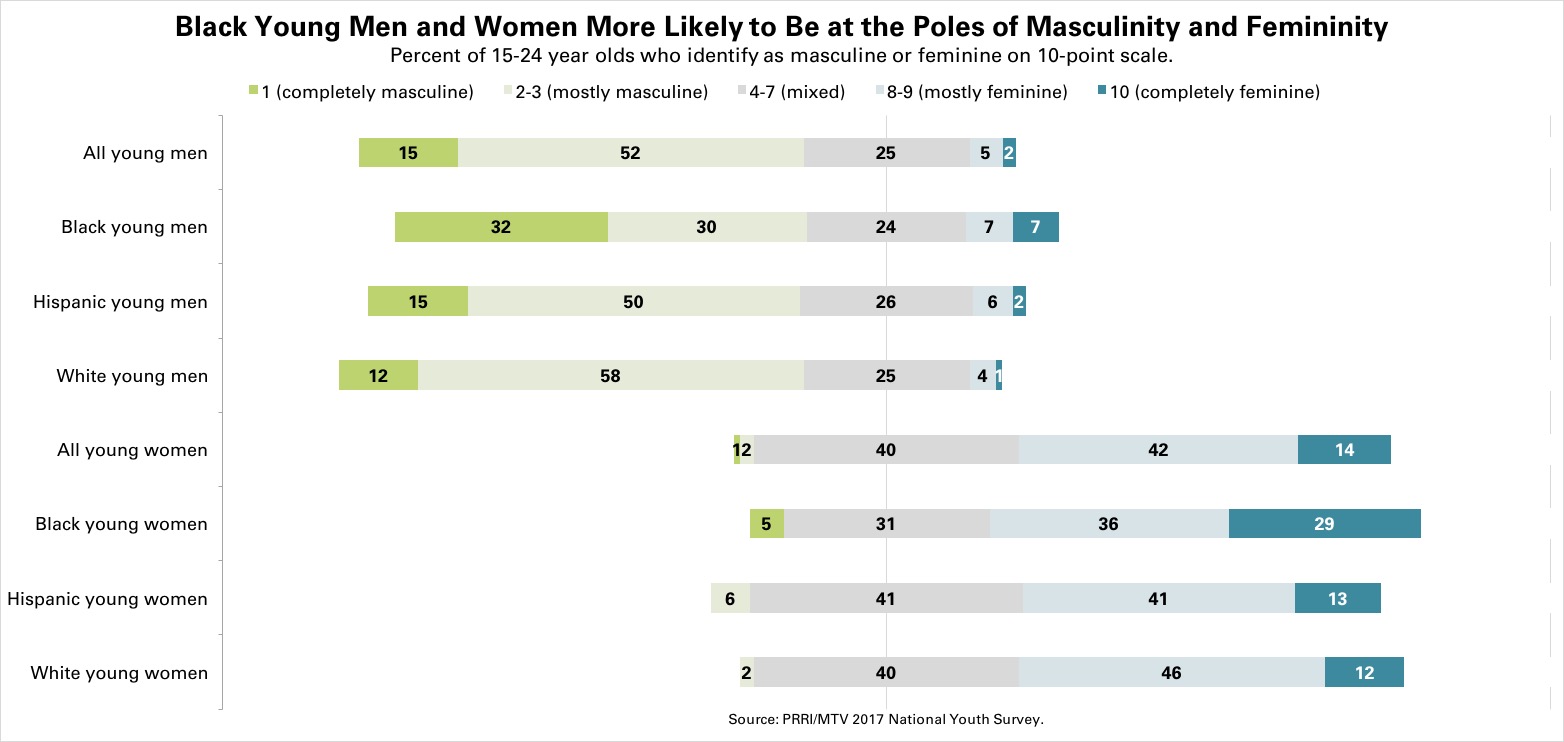In recent months, stories of sexual misconduct perpetrated by men in positions of power have dominated national headlines. In the aftermath of these revelations, some pundits argue that traditional ideas about masculinity contribute to a culture of sexual violence. The recent PRRI/MTV 2017 National Youth Survey of young people aged 15-24 found that American young people, and especially young women, are highly sensitive to ways that the pressure for men to be traditionally masculine can lead to negative social impacts. Young people are also increasingly challenging gender norms. A majority of young people do not identify as completely masculine or feminine at all, something that is particularly true for young women and young LGBT people.
Most young people believe young men face pressure to act in traditionally masculine ways.
Young people overall are somewhat divided over whether the pressure to conform to traditional gender norms leads to negative outcomes. Close to half (46 percent) of young people say societal pressure to conform to conventional notions of masculinity encourages sexually aggressive behavior, and just as many (46 percent) say that it encourages homophobic attitudes. Forty-three percent say that it encourages violent behavior in general.
There are substantial divisions between young men and women about the effects of this pressure. Young women are far more likely than young men to say it encourages sexually aggressive behavior (54 percent vs. 37 percent, respectively), violent behavior in general (53 percent vs. 34 percent, respectively), and homophobic attitudes (54 percent vs. 39 percent, respectively).
Fewer than one in five young men and women describe themselves as “completely masculine” or “completely feminine.”
For the PRRI/MTV survey, young people were asked to rate themselves according to traditional conceptions of masculinity and femininity on a scale of 1-10. Respondents scoring between 1 and 3 identified as completely or mostly masculine. Respondents with scores between 4 and 7 are identified as having a mixed orientation, while those who scored 8 to 10 identified as mostly or completely feminine. Only 15 percent of young men and 14 percent of young women describe themselves as completely masculine or feminine, respectively. Two-thirds (67 percent) of young men describe themselves as mostly or completely masculine. A majority (56 percent) of young women describe themselves as mostly or completely feminine. One in five (20 percent) young people rate themselves as a combination of the two – with young women being much more likely to do so than young men (40 percent vs. 25 percent, respectively).
Significant differences exist among young people by race and ethnicity when it comes to identifying as mostly or completely masculine or feminine. Thirty-two percent of black young men identify as completely masculine, compared to just 15 percent of Hispanic and 12 percent of white young men. Twenty-nine percent of black young women say they are completely feminine, compared to 13 percent of Hispanic and 12 percent of white young women.
More than six in ten (62 percent) LGBT young people say that their gender identity falls somewhere near the middle of the masculinity-femininity spectrum. Eleven percent of LGBT young people identify as mostly or completely masculine, while 27 percent identify as mostly or completely feminine.
